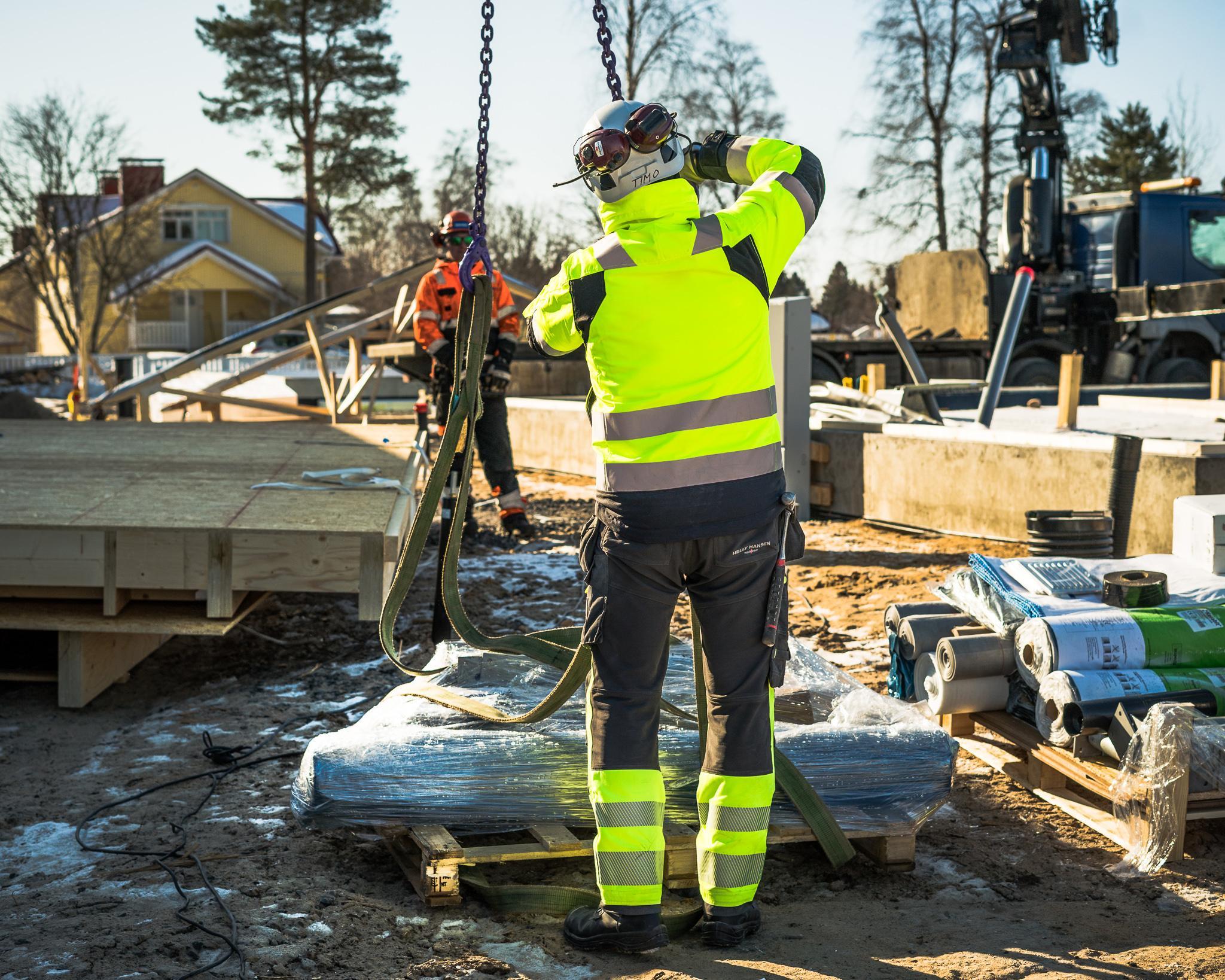
DEN managed to reduce its carbon footprint, even as construction volume increased
In 2022, DEN reduced its carbon footprint by a total of 9 per cent, even though its construction volume increased. For example, the construction of single-family houses grew 23 per cent from the previous year. In proportion to revenue, carbon footprint decreased by nearly 16 per cent.
The reduction in the carbon footprint is mainly based on the energy efficiency of houses sold continuing to improve, the increase in renewable sources of energy in the completed projects, and the increased share of renewable energy in the company’s own production.
Out of DEN’s carbon footprint, 75 per cent came from materials and 21 per cent during the life cycle of completed houses. Only a small share of the carbon footprint comes from the production process itself. DEN has put a lot of effort into the efficiency and smooth functioning of the process.
“Carbon neutral living is already possible. You can purchase any Designtalo model as an ECO2 house, where the solutions are especially energy efficient and where the carbon footprint has been compensated for the whole life cycle. In the future, we will see energy self-sufficient living solutions,” says Maria Mroue, DEN’s Director of ESG.
In construction, minimising waste is also essential for sustainability. By combining good design and efficient production, many cut-to-size materials, such as timber and insulation, can be fully utilised.
Timber construction also has a carbon handprint
Wood as a construction material binds carbon, which means that timber construction also has a carbon handprint. For example, the logs used in DEN’s Finnlamelli log houses come from Finnish PEFC certified pine. Logs are an exceptionally low-emission construction material, which binds carbon in the log structures of the house for generations.
“Unlike for calculating the carbon footprint, there are no international, widely used standards for calculating and reporting the carbon handprint. That is why the carbon handprint cannot yet be considered alongside the carbon footprint, as an element reducing emissions,” Mroue says.
DEN’s carbon footprint was calculated using the international Greenhouse Gas Protocol standard. It extensively includes the direct and indirect emissions of operations and, such as in DEN’s case, some of the life-cycle carbon emissions of houses delivered to customers.
The focus of DEN’s sustainability work is on the environment, safety and health as well as good governance. In the spring of 2022, DEN published an extensive sustainability report for 2021, as a pioneer in the industry. The sustainability report for 2022 will be published in May 2023.
Additional Information
Maria Mroue, Head of Marketing, Communications and ESG, DEN Finland
maria.mroue [at] den.fi | +358 50 393 4974
DEN Finland Oy is a leading manufacturer of turnkey single-family homes. The company employs approximately 400 persons. Funds managed by private equity firm CapMan are the main owners of DEN. DEN Finland consists of Designtalo, pioneer in turnkey single-family homes; log manufacturer Finnlamelli and Ainoakoti brand, owned by DEN and K-Rauta together.